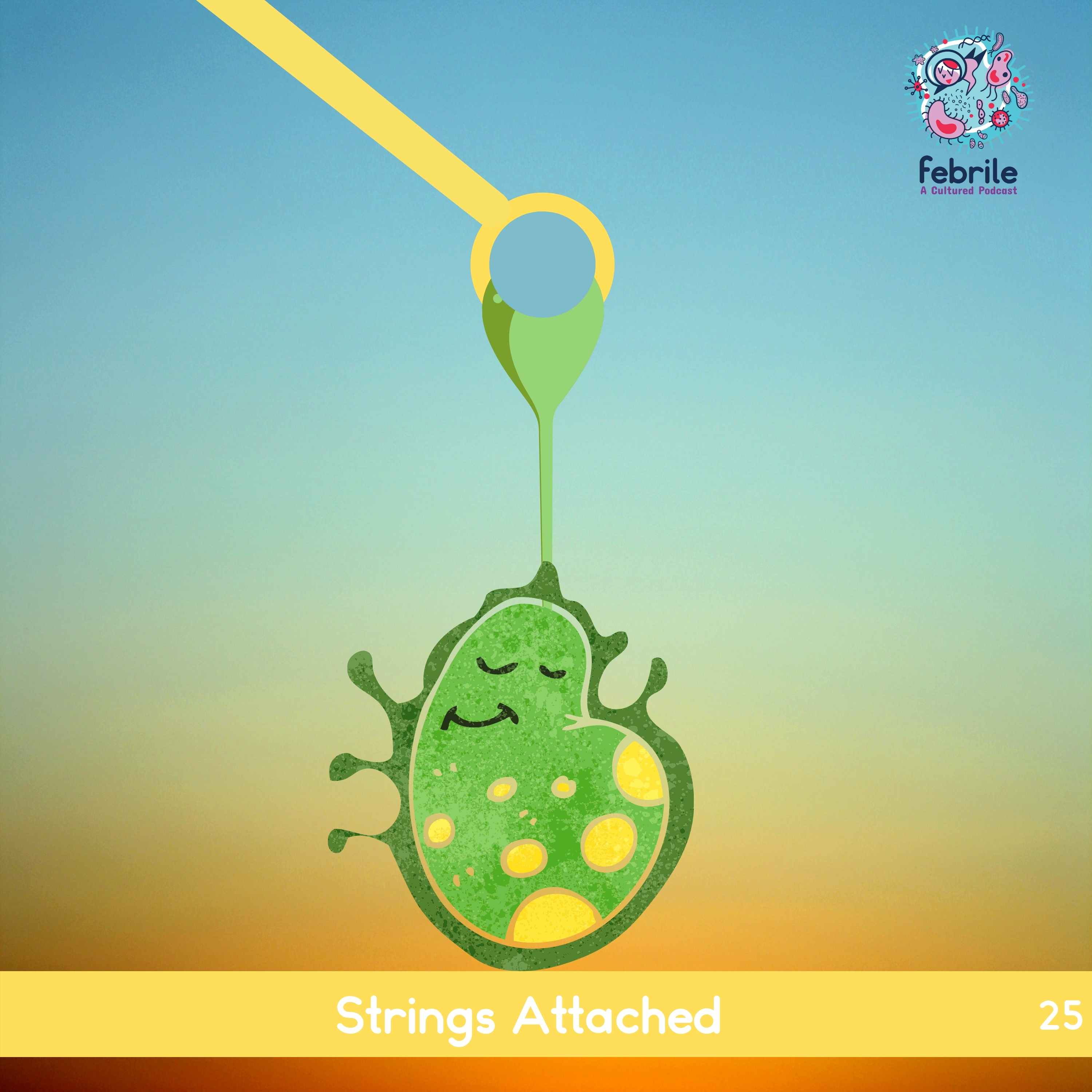Credits
Host: Sara Dong
Guest: Thomas Russo
Writing/Producing/Editing/Cover Art/Infographics: Sara Dong
Our Guest
Thomas Russo, MD

Dr. Thomas Russo is the Chief of Infectious Diseases Professor of Medicine and Microbiology and Immunology and at the University of Buffalo Jacobs School of Medicine and Biomedical Sciences.
He has an active nationally funded translational research program focused on gram negative bacilli including E.coli, Acinetobacter, and hypervirulent variant of Klebsiella pneumoniae. He also is an active clinical teacher who spends time with medical students, residents, and ID fellows
Culture
The Aeneid by Virgil
Consult Notes
Consult Q
50 year old male with fever and GNR bacteremia
One-liner
50 yo M with DM2 who was found to have bacteremia with hepatic and epidural abscesses due to hypervirulent Klebsiella pneumoniae
Key Points
For the referenced overview of hypervirulent Klebsiella pneumoniae that we discussed in the episode, check out: Russo TA, Marr CM. Hypervirulent Klebsiella pneumoniae. Clin Microbiol Rev. 2019;32(3):e00001-19. Published 2019 May 15. doi:10.1128/CMR.00001-19
An introduction to hypervirulent Klebsiella (hvKP)!
- Most Klebsiella infections in the USA are caused by “classical” Klebsiella pneumoniae (cKP). Commonly these include pneumonia, UTI, and occasional line and wound infections
- This organism is often known for challenging multidrug resistant strains in healthcare settings, similar to Acinetobacter baumanii and Pseudomonas
- The first clinical report that described hypervirulent Klebsiella infection came out of Taiwan in the 1980s
- hvKP is unique because:
- Infections arose from community setting rather than healthcare associated
- Patient were otherwise healthy individuals
- Propensity for multiple sites of infection and/or development of subsequent metastatic spread (which is unusual for members of family Enterobacterales)
- The hallmark clinical syndrome for hvKP is a hepatic abscess in absence of biliary tract disease. Take a look at some cases:
- Liu, et al from above
- Wang JH, Liu YC, Lee SS, et al. Primary liver abscess due to Klebsiella pneumoniae in Taiwan. Clin Infect Dis. 1998;26(6):1434-1438. doi:10.1086/516369
- Cheng DL, Liu YC, Yen MY, Liu CY, Wang RS. Septic metastatic lesions of pyogenic liver abscess. Their association with Klebsiella pneumoniae bacteremia in diabetic patients. Arch Intern Med. 1991;151(8):1557-1559.
- hvKP can infect virtually any site in the body though: nonhepatic abscess, pneumonia, necrotizing infection, meningitis, endophthalmitis, endocarditis
How to identify hvKP
- One of the problems that we have is that the clinical microbiology lab is unable to identify if a Klebsiella strain is “hypervirulent”, so we are relying on clinical suspicion
- Microbiology labs can however, identify if the Klebsiella strain has the phenotype of “hypermucoviscousity”
- This means the capsule has the property where if a colony is touched with an inoculation loop and the loop is lifted straight up, it forms a “string”
- Formation of viscous strings >5mm in length = positive “string test”
- Keys to remember:
- Not all hvKP isolates have a positive string test
- Some cKP strains possess this characteristic
- There are a few biomarker tests with better sensitivity but they are not widely available
- A few references/papers:
- Catalán-Nájera JC, Garza-Ramos U, Barrios-Camacho H. Hypervirulence and hypermucoviscosity: Two different but complementary Klebsiella spp. phenotypes?. Virulence. 2017;8(7):1111-1123. doi:10.1080/21505594.2017.1317412
- Fang CT, Chuang YP, Shun CT, Chang SC, Wang JT. A novel virulence gene in Klebsiella pneumoniae strains causing primary liver abscess and septic metastatic complications. J Exp Med. 2004;199(5):697-705. doi:10.1084/jem.20030857
- Russo TA, Olson R, Fang CT, et al. Identification of Biomarkers for Differentiation of Hypervirulent Klebsiella pneumoniae from Classical K. pneumoniae. J Clin Microbiol. 2018;56(9):e00776-18. Published 2018 Aug 27. doi:10.1128/JCM.00776-18
Management of infection
- Isolates often have antimicrobial sensitivity, but the challenges for management include rapid initiation of therapy to prevent spread, detection of occult abscess to enable source control, and appropriate site specific therapy (such as with meningitis, endophthalmitis, prostatic abscess)
- Source control:
- Similar to other abscesses
- Consider large bore catheters to drain collections with frequent flushing, as the hypermucoviscous nature of infection by clog small catheters easily
- Be vigilant and remember to search for more occult sources!
- Antibiotic selection
- Guide by susceptibility results
- In general, most of these infections are widely susceptible to GN agents
- Over the past decade or so, it has been described worldwide that either:
- Hypervirulent strain acquires an antimicrobial resistance plasmid (ESBL or carbapenemases), or
- Classical strains of multidrug resistant Klebsiella acquire hypervirulent plasmid
- So caution for the confluence of antimicrobial resistance possessed by cKP and virulence factors by hvKP on the same coexisting plasmid!
- Duration of therapy
- No well described effective duration of therapy
- Dr. Russo uses the principle that reinfection and relapse are common to justify extending duration a little past the point of radiographic clearance
- Maybe we’ll have tests in the future to help guide whether an infection has been cleared!
- A few references/papers:
- Lee CR, Lee JH, Park KS, et al. Antimicrobial Resistance of Hypervirulent Klebsiella pneumoniae: Epidemiology, Hypervirulence-Associated Determinants, and Resistance Mechanisms. Front Cell Infect Microbiol. 2017;7:483. Published 2017 Nov 21. doi:10.3389/fcimb.2017.00483
- Li W, Sun G, Yu Y, et al. Increasing occurrence of antimicrobial-resistant hypervirulent (hypermucoviscous) Klebsiella pneumoniae isolates in China. Clin Infect Dis. 2014;58(2):225-232. doi:10.1093/cid/cit675
- Huang YH, Chou SH, Liang SW, et al. Emergence of an XDR and carbapenemase-producing hypervirulent Klebsiella pneumoniae strain in Taiwan. J Antimicrob Chemother. 2018;73(8):2039-2046. doi:10.1093/jac/dky164
A few notes on infection control and prevention
- In terms of infection control, hospitals have different isolation policies for ESBL and carbapenemase bugs → and these isolation practices should be applied to hypervirulent strains that are drug resistant
- Another question to be answered is what to do with patients with antimicrobial-sensitive hypervirulent klebsiella? Some hospitals do institute contact precautions for hypervirulent strains in an abundance of caution. But this has not been studied and there’s not an evidence-based answer to whether isolation improves outcomes.
- Being conservative and using precautions seems appropriate to Dr. Russo as the severity of spreading this infection and potentially fostering drug resistant strains in the future are causes for concern.
The top 3 knowledge gaps that Dr. Russo is looking forward to finding answers
- The majority of these infections have been described in Asian, Pacific Island, or Hispanic backgrounds. Is this genetic predisposition or exposure/colonization? Perhaps acquisition of the colonization is the risk factor. It’s unclear if these strains come from the environment or food or somewhere else, etc, and genetic studies are still rare.
- Studies in Korea and elsewhere have shown that colonization is much more common than pathologic infection. This means it’s unclear when and how the Klebsiella spreads from its sites of mucosal colonization. Does colonic burden have a threshold for systemic spread? It was found that rates of hypervirulent klebsiella go up after a course of ampicillin (Klebsiella is resistant to amp). Was this because the burden of Klebsiella increased after treatment? We don’t know yet.
- Why does hypervirulent klebsiella cause multiple sites of infection when “classic” klebsiella does not? The gene(s) that give these strains this ability have not been found. Speculatively, the hypermucoviscosity may allow this bacteria to embolize in large clumps of bacteria rather than smaller clusters which may be a more effective way to metastasize infection (again purely speculative).
For more knowledge gaps, don’t forget to check out the review article.
Episode Art & Infographics
Goal
Listeners will be able to recognize hypervirulent Klebsiella pneumoniae as a unique gram negative organism that can cause metastatic infection
Learning Objectives
After listening to this episode, listeners will be able to:
- Compare and contrast classical and hypervirulent Klebsiella pneumoniae
- Describe how to identify hypermucoviscous phenotype in microbiology lab with the string test
Disclosures
Our guest (Thomas Russo) as well as Febrile podcast and hosts report no relevant financial disclosures
Citation
Russo, T., Dong, S. “#25: Strings Attached”. Febrile: A Cultured Podcast. https://player.captivate.fm/episode/95c4bf3c-3869-4502-b05a-b53a0fa19356


